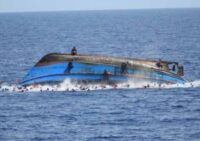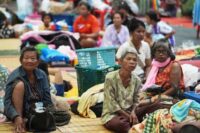News | Events | Digital PR | Advertising
Canada Introduces Nigeria Student Express (NSE) Program to Fast-Track Study Permits for Nigerian Applicants

The Nigeria Student Express (NSE) program was created to expedite the processing of study permits for Nigerian applicants. This move aligns with recent adjustments to Canada’s international student program, aimed at controlling the influx of temporary residents through work and study visas.
As stated on the Government of Canada website, the NSE functions similarly to the Student Direct Stream (SDS) but with a key difference: applicants must demonstrate that they have funds in a local bank account (through MyBank) rather than purchasing a Canadian Guaranteed Investment Certificate (GIC) and paying additional fees as required under the SDS.
Going forward, all study permit applications from Nigerian students must follow the standard application process. Over the past year, Immigration, Refugees and Citizenship Canada (IRCC) has implemented several important changes, including setting a target of issuing up to 437,000 additional study permits in 2025, covering all levels of study including master’s and doctoral programs.
Additionally, new requirements for Post-Graduation Work Permits (PGWP) have been introduced, such as specific discipline and language proficiency criteria, as well as limitations on the employment rights of overseas students’ spouses.
The introduction of the SDS in 2018 aimed to streamline study permit applications for students from 14 countries, including China, India, Pakistan, and the Philippines. However, when the SDS was phased out, it became clear that a tailored solution for Nigerian applicants was necessary. Consequently, the NSE pilot program was launched in January 2020, designed specifically with Nigeria’s regional context in mind.
Explore more
Scientists Research Nigeria’s Okra, Maize, Four Other Crops During NASA’s Space Mission
International astronauts will research six indigenous Nigerian crops and seeds during the...
President Trump Orders Pharmaceutical Companies To Cut Drug Prices Within 60 Days
President Donald Trump on Thursday said he asked major pharmaceutical companies to...
Microsoft To Become The Next $4 Trillion Company
Microsoft (MSFT.O), opens new tab soared past $4 trillion in market valuation...
Importers Slash Petrol Prices Below Dangote Rates Amid Rising Market Competition
Competition has hit Nigeria’s petroleum sector as fuel importers slash petrol prices...












Leave a comment